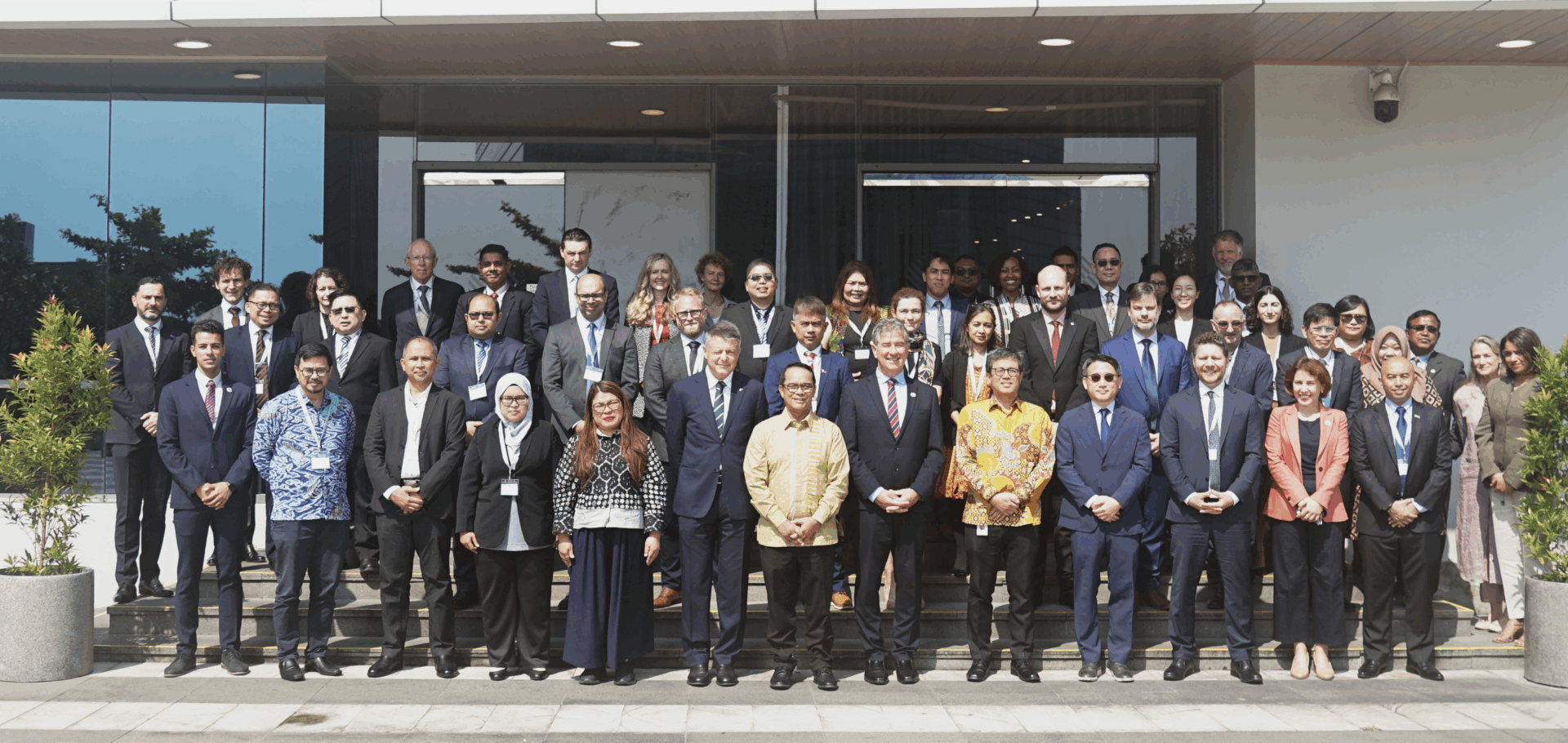
The IIJ CT PHARE, in collaboration with the United Nations Security Council Counter-Terrorism Committee Executive Directorate (CTED), and with the generous support of the European Union and the Republic of Korea, successfully convened a regional event in Jakarta, Indonesia, focused on raising awareness of the GCTF Brussels Memorandum on Good Practices for Oversight and Accountability Mechanisms in Counterterrorism. This important gathering was made possible thanks to the support and facilitation of the Indonesian Ministry of Foreign Affairs.
The event brought together officials from Bangladesh, Indonesia, Malaysia, the Maldives, the Philippines, the Republic of Korea, Sri Lanka, and Thailand to deepen understanding and support implementation of the Brussels Memorandum, with a particular focus on intelligence and security sector oversight. Practitioners from Australia, Canada, Denmark, the Netherlands, and the United Kingdom also contributed, along with the UN SR on human rights and fundamental freedoms while countering terrorism, Ombudsperson of the UNSC ISIL (Da'esh) and Al Qaida Sanctions Committee, the Independent Examiner of Security Legislation of Ireland, and international experts from the Parliamentarians for Human Rights of the Association of Southeast Asian Nations, the Office of the United Nations High Commissioner for Human Rights, the United Nations Office on Drugs and Crime Regional Office for Southeast Asia and the Pacific, the United Nations Office of Counter-Terrorism, and the University of Malta.
While not legally binding, the Brussels Memorandum can serve as a valuable resource for both GCTF members and non-members, offering modalities and avenues to strengthen the role, responsibilities, independence, and effectiveness of oversight and accountability mechanisms in the counter-terrorism context. By encouraging dialogue and exchange, the event highlighted how the Memorandum can be used as a flexible tool to advance and to foster more transparent and accountable security governance at both national and regional levels.
Through a series of interactive sessions, participants exchanged views on existing oversight practices, identified gaps in their current systems, and explored opportunities to strengthen review methodologies. Drawing from the experience of countries with established oversight structures, the discussions highlighted models of accountability, lessons learned, and practical steps for advancing oversight in complex counter-terrorism environments.
As one practitioner noted, “You would be surprised how often the contexts may differ, yet the challenges faced by oversight mechanisms are strikingly similar.” The event underscored the value of adapting—not duplicating—effective practices to different national settings, and the importance of cross-context learning. Internal oversight bodies stand to benefit from deeper collaboration, shared resources, and continuous peer engagement. Strengthening oversight is a long-term journey, and sustaining political will is essential to ensure meaningful progress and cooperation.
One potential avenue for sustained collaboration discussed at the event was the establishment of a working group tasked with curating and sharing key literature and best practices. Such efforts could further support peer learning and help embed accountability into the design and implementation of security technologies and frameworks. As the Brussels Memorandum reminds us (p.4), the international standard should be seen as a minimum—States are encouraged to aim higher, not lower, in safeguarding human rights while pursuing security.
The programme laid the groundwork for ongoing regional cooperation and a broader uptake of the Brussels Memorandum as a guiding framework. It also highlighted the critical role of political will and long-term commitment in ensuring oversight mechanisms are not only created but meaningfully empowered and resourced. The launch of the Brussels Memorandum will take place in October.
The IIJ extends its sincere thanks to CTED for its partnership, the Indonesian Ministry of Foreign Affairs for its hospitality, and to the European Union and Republic of Korea for their continued support. Special appreciation is given to all speakers and participants whose contributions and engagement made the event a valuable step forward in promoting transparent and accountable counter-terrorism practices in the South and South-East Asian region.
